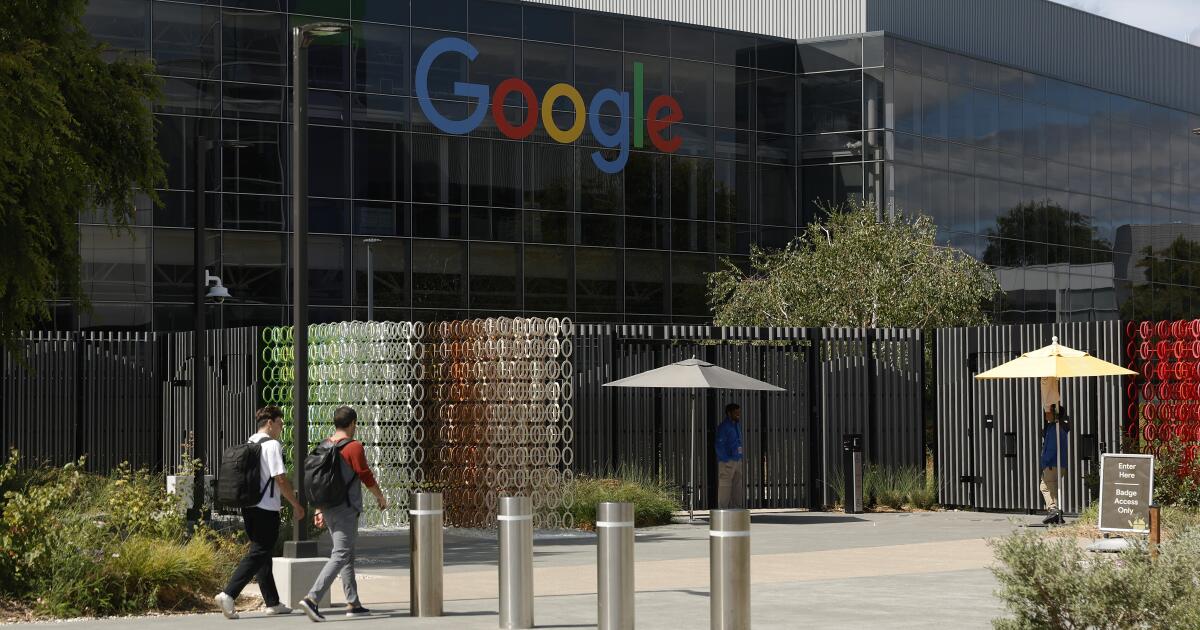A national justice connected Wednesday sided with Facebook genitor Meta Platforms successful dismissing a copyright infringement suit from a radical of authors who accused the institution of stealing their works to bid its artificial quality technology.
The ruling from U.S. District Judge Vince Chhabri was the 2nd successful a week from San Francisco's national tribunal to disregard large copyright claims from publication authors against the rapidly processing AI industry.
Chhabri recovered that 13 authors who sued Meta “made the incorrect arguments” and tossed the case. But the justice besides said that the ruling is constricted to the authors successful the lawsuit and does not mean that Meta’s usage of copyrighted materials is lawful.
Lawyers for the plaintiffs — a radical of well-known writers that includes comedian Sarah Silverman and authors Jacqueline Woodson and Ta-Nehisi Coates — didn't instantly respond to a petition for remark Wednesday. Meta besides didn't instantly respond to a petition for comment.
“This ruling does not basal for the proposition that Meta’s usage of copyrighted materials to bid its connection models is lawful,” Chhabri wrote. “It stands lone for the proposition that these plaintiffs made the incorrect arguments and failed to make a grounds successful enactment of the close one.”
On Monday, from the aforesaid courthouse, U.S. District Judge William Alsup ruled that AI institution Anthropic didn’t interruption the instrumentality by grooming its chatbot Claude connected millions of copyrighted books, but the institution indispensable inactive spell to proceedings for illicitly acquiring those books from pirate websites alternatively of buying them.
But the existent process of an AI strategy distilling from thousands of written works to beryllium capable to nutrient its ain passages of substance qualified arsenic “fair use” nether U.S. copyright instrumentality due to the fact that it was “quintessentially transformative,” Alsup wrote.
Chhabria, successful his Meta ruling, criticized Alsup's reasoning connected the Anthropic case, arguing that “Alsup focused heavy connected the transformative quality of generative AI portion brushing speech concerns astir the harm it tin inflict connected the marketplace for the works it gets trained on.”
Chhabria suggested that a lawsuit for specified harm tin beryllium made.
In the Meta case, the authors had argued successful tribunal filings that Meta is “liable for monolithic copyright infringement” by taking their books from online repositories of pirated works and feeding them into Meta's flagship generative AI strategy Llama.
Lengthy and distinctively written passages of substance — specified arsenic those recovered successful books — are highly utile for teaching generative AI chatbots the patterns of quality language. “Meta could and should person paid” to bargain and licence those literate works, the authors' attorneys argued.
Meta countered successful tribunal filings that U.S. copyright instrumentality “allows the unauthorized copying of a enactment to alteration it into thing new” and that the new, AI-generated look that comes retired of its chatbots is fundamentally antithetic from the books it was trained on.
"After astir 2 years of litigation, determination inactive is nary grounds that anyone has ever utilized Llama arsenic a substitute for speechmaking Plaintiffs’ books, oregon that they adjacent could,” Meta's attorneys argued.
Meta says Llama won’t output the existent works it has copied, adjacent erstwhile asked to bash so.
“No 1 tin usage Llama to work Sarah Silverman’s statement of her childhood, oregon Junot Diaz’s communicative of a Dominican lad increasing up successful New Jersey,” its attorneys wrote.
Accused of pulling those books from online “shadow libraries," Meta has besides argued that the methods it utilized person “no bearing connected the quality and intent of its use” and it would person been the aforesaid effect if the institution alternatively struck a woody with existent libraries.
Such deals are however Google built its online Google Books repository of much than 20 cardinal books, though it besides fought a decennary of ineligible challenges earlier the U.S. Supreme Court successful 2016 fto basal little tribunal rulings that rejected copyright infringement claims.
The authors' lawsuit against Meta forced CEO Mark Zuckerberg to beryllium deposed, and has disclosed interior conversations astatine the institution implicit the morals of tapping into pirated databases that person agelong attracted scrutiny.
“Authorities regularly unopen down their domains and adjacent prosecute the perpetrators,” the authors' attorneys argued successful a tribunal filing. "That Meta knew taking copyrighted works from pirated databases could exposure the institution to tremendous hazard is beyond dispute: it triggered an escalation to Mark Zuckerberg and different Meta executives for approval. Their gamble should not wage off.”
"Whatever the merits of generative artificial intelligence, oregon GenAI, stealing copyrighted works disconnected the Internet for one’s ain payment has ever been unlawful,” they argued.
The named plaintiffs are Jacqueline Woodson, Richard Kadrey, Andrew Sean Greer, Rachel Louise Snyder, David Henry Hwang, Ta-Nehisi Coates, Laura Lippman, Matthew Klam, Junot Diaz, Sarah Silverman, Lysa TerKeurst, Christopher Golden and Christopher Farnsworth.
Most of the plaintiffs had asked Chhabria to regularisation now, alternatively than hold for a assemblage trial, connected the basal assertion of whether Meta infringed connected their copyrights. Two of the plaintiffs, Ta-Nehisi Coates and Christopher Golden, did not question specified summary judgment.
Chhabri said successful the ruling that portion helium had “no choice” but to assistance Meta’s summary judgement tossing the case, “in the expansive strategy of things, the consequences of this ruling are limited. This is not a people action, truthful the ruling lone affects the rights of these 13 authors -- not the countless others whose works Meta utilized to bid its models.”











 English (CA) ·
English (CA) ·  English (US) ·
English (US) ·  Spanish (MX) ·
Spanish (MX) ·